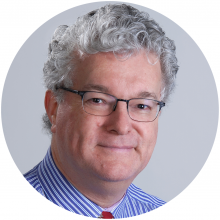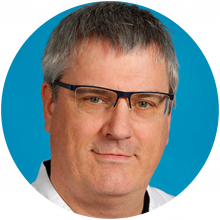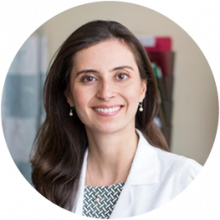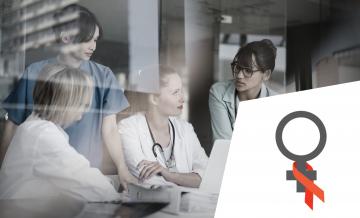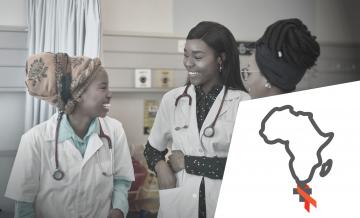-
Cross-Disciplinary Summit on Maternal and Neonatal Health has been postponed indefinitely. Make sure to sign up for our newsletter to stay updated on more developments.
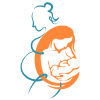
Cross-Disciplinary Summit on Maternal and Neonatal Health

What's New
About this Program
The Cross-Disciplinary Summit on Maternal and Neonatal Health aims to raise awareness of new data on a broad spectrum of communicable and non-communicable diseases that can affect maternal and fetal health. The ultimate goal is to provide a platform for cross-disciplinary discussion among stakeholders of different backgrounds on prevention and management strategies to enable optimal health outcomes for both the mother and the infant.
Pregnancy is a major life event accompanied by social, psychological, and physiological changes, which may increase the vulnerability of pregnant and breastfeeding individuals to various diseases . Poor maternal health conditions may result in severe consequences on neonatal health.
Pregnancy has been associated with an altered immune response, which may result in an increased risk to contract communicable diseases (CDs), such as HIV, Ebola virus, Zika virus, or COVID-19, and an increased risk of severe outcomes once infected. In addition, a higher proportion of individuals are entering pregnancy with pre-existing non-communicable diseases (NCDs) such as epilepsy, diabetes, or cancer. Physiological alterations due to pregnancy may also negatively impact the progression of NCDs. The multifaceted nature of some NCDs and CDs in combination with physical alterations related to pregnancy and breastfeeding calls for a multidisciplinary approach to the prevention or management of these conditions.
Immunization is an essential part of disease prevention and prescription of therapeutic agents is important for disease management. However, only a limited number of regulatory clinical studies have been conducted in pregnant and breastfeeding people. Ethical and logistical considerations and the current regulatory system hinder the enrolment and participation of pregnant and breastfeeding people and neonates in clinical trials. As a result, off-label medicinal agents are used during this critical period in the mother’s life, as well as fetal and child development. Understanding the pharmacokinetics and pharmacodynamics during different stages of pregnancy and breastfeeding is important to ensure maximal safety and support proper prevention and management of different diseases in pregnant individuals and infants.
Recent studies indicate that prevention and management of CDs or NCDs in pregnant and breastfeeding individuals and neonates can also be influenced by Social and structural determinants of health (SSDOH). For example, the development of some NCDs has been associated to stress related to SSDOH. In addition, a pregnant person’s likelihood of being screened for medical risk factors such as high blood pressure, preeclampsia, cardiovascular disease, diabetes, and substance misuse can also be affected by SSDOH. Therefore, understanding how SSODH can impact maternal and infant health conditions would be an important step to improving the prevention or management of health issues of the mother and the infant.
General Information
- Family doctors;
- Pharmacologists; and
- Regulatory and community representatives.
- Provide a platform for knowledge exchange between clinicians, academia, regulatory, and community representatives about improving maternal and fetal health outcomes;
- Educate about the prevention and management of a broad spectrum of NCDs and CDs; and
- Discuss the influence of SSDOH may affect maternal, fetal, and infant health.
Practical Information
Any individual who feels discriminated against, harassed, disrespected, or marginalized is encouraged to report the incident(s) to VE and AME via info@amededu.com or to one of our on-site personnel.
Any participant who is found to have exhibited any inappropriate conduct or behavior against others may be removed from the program.
Program Chairs
Organizing Committee
The members of the Organizing Committee are a group of carefully selected experts and inspirational leaders in their respective fields. They meet frequently to discuss the scientific program of the workshop, identify interesting topics and candidate speakers, and review all submitted abstracts.
Scientific Committee
-
Abdulfetah Abdulkadir Abdosh, MD, St. Paul's Hospital Millennium Medical College, Ethiopia
-
Alfred Osoti, MBChB, MMed, MPH, PhD, University of Nairobi, University of Washington; Kenya, United States
-
Anne Kihara, M.B.,ch.B, M.Med(Obs/Gyn), University of Nairobi, Kenya
The members of Scientific Committee are hand-picked by the Organizing Committee and the conference secretariat based on their significant contributions and commitment to the field. They assist the Organizing Committee by providing them with suggestions for speakers and topics. In addition, members of the Scientific Committee participate in reviewing submitted abstracts, and play an active role during the workshop as moderators and/or chairs of sessions.


